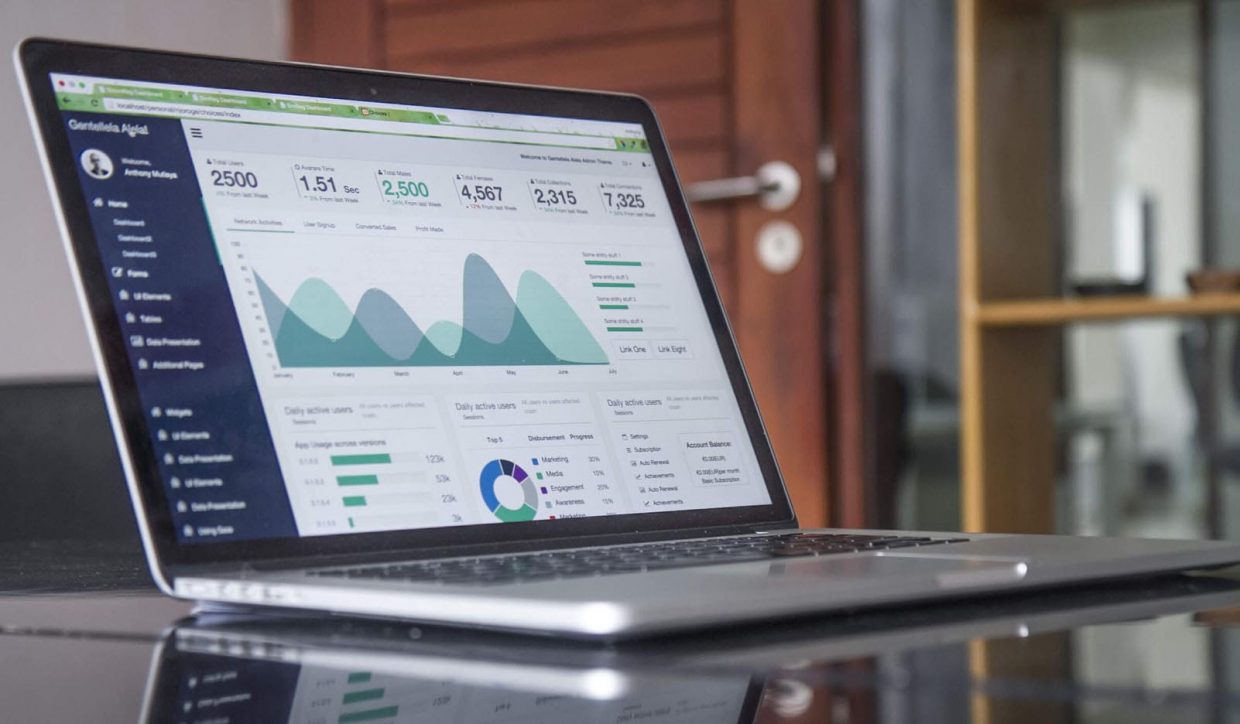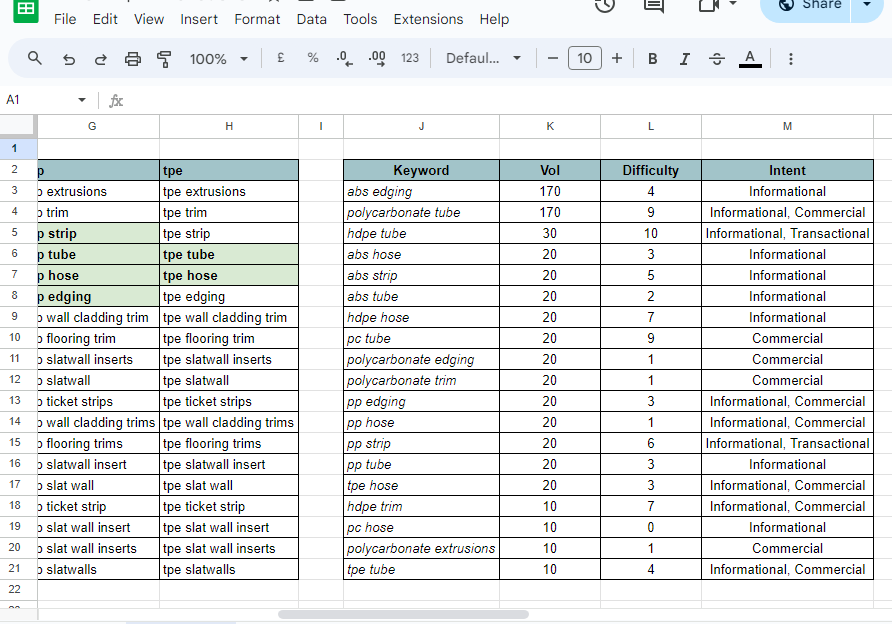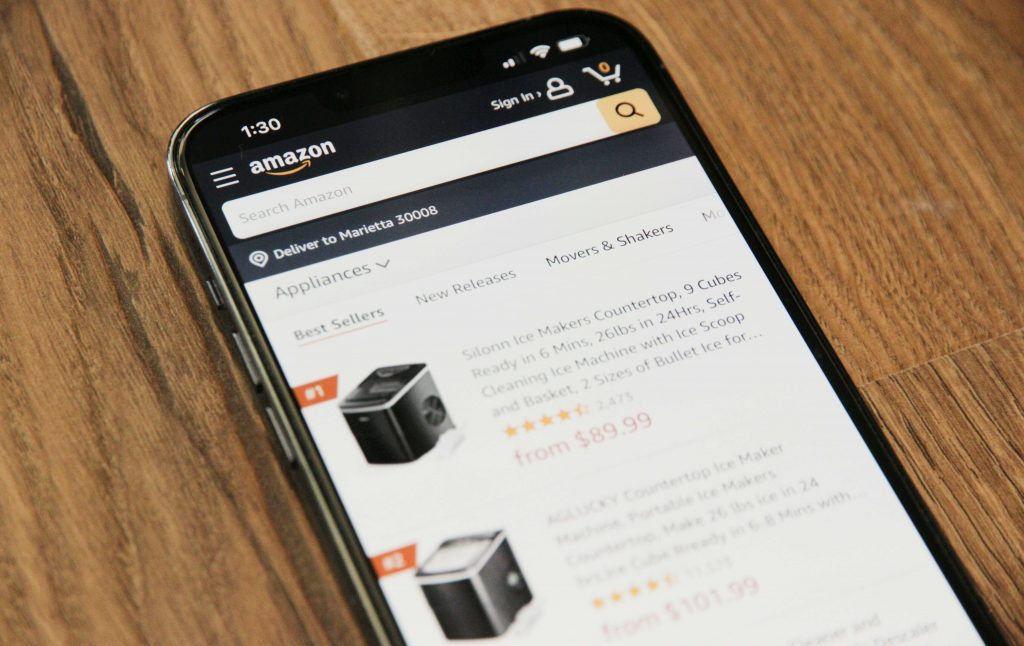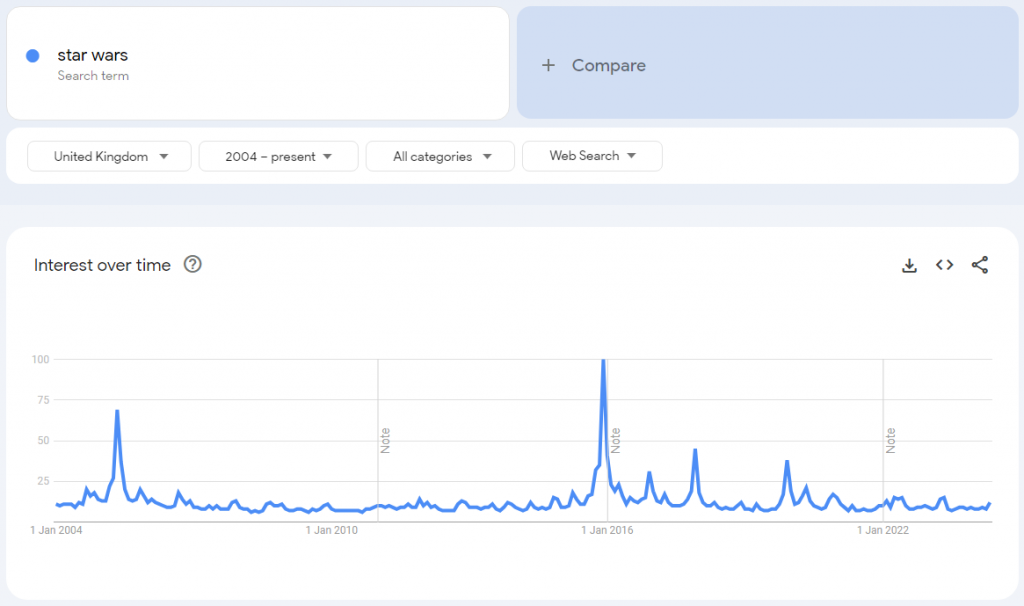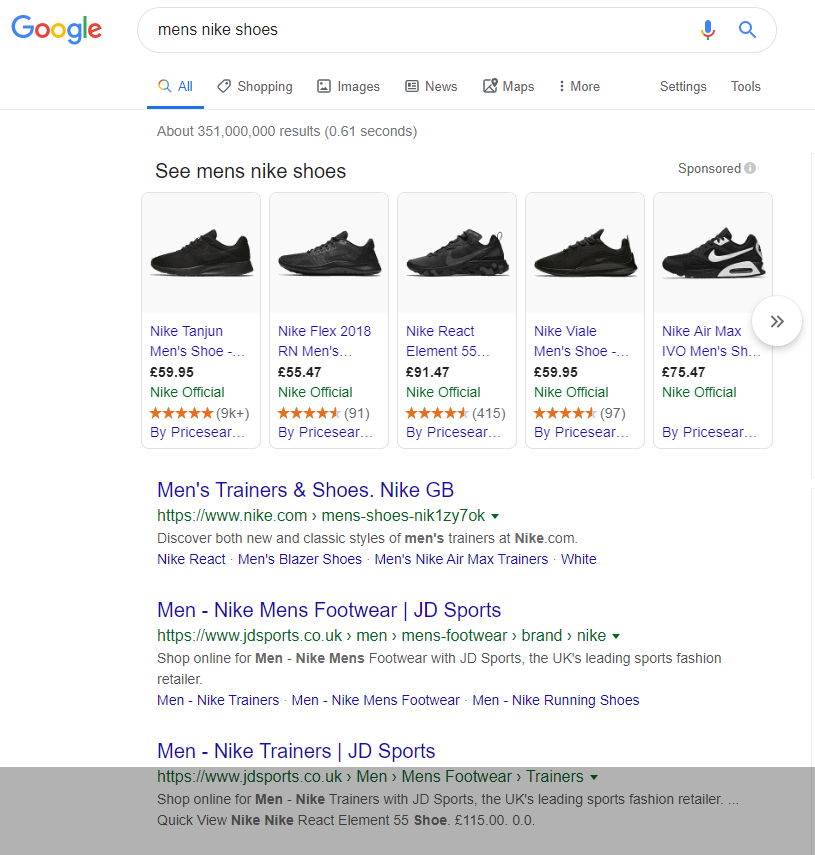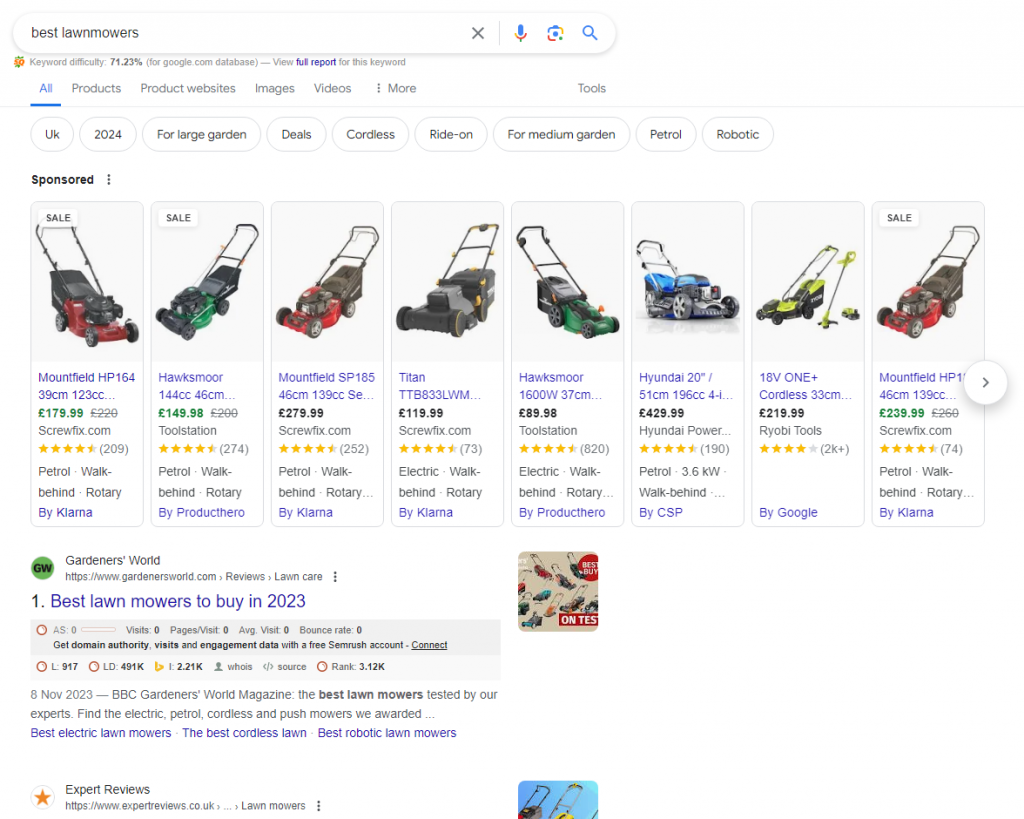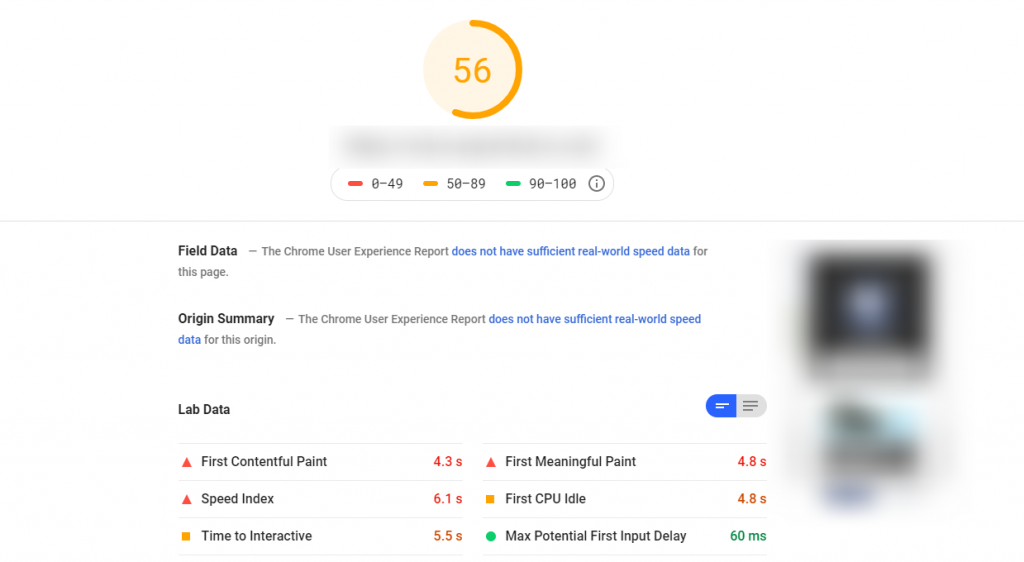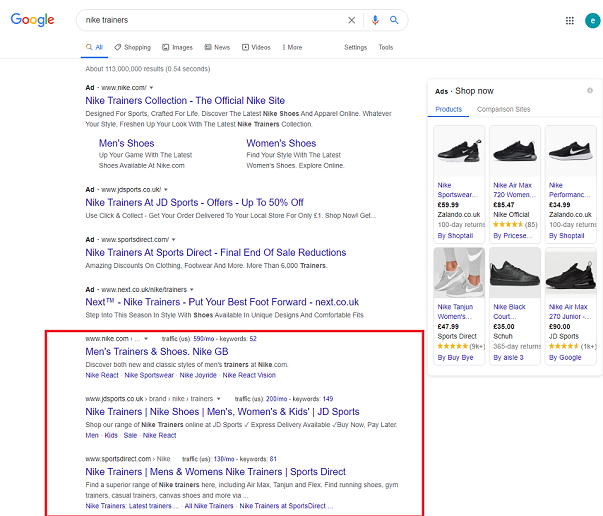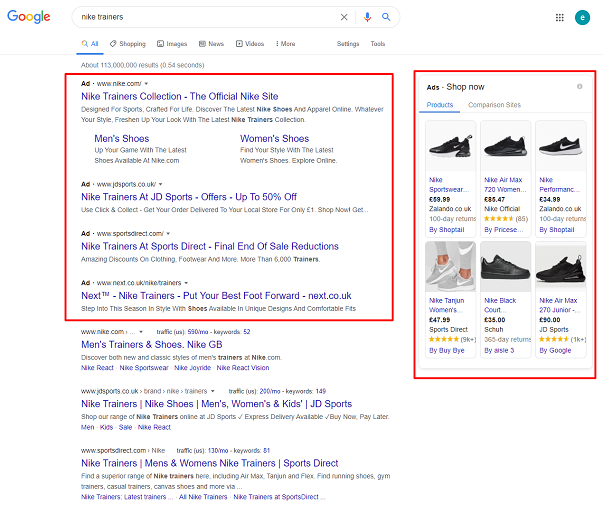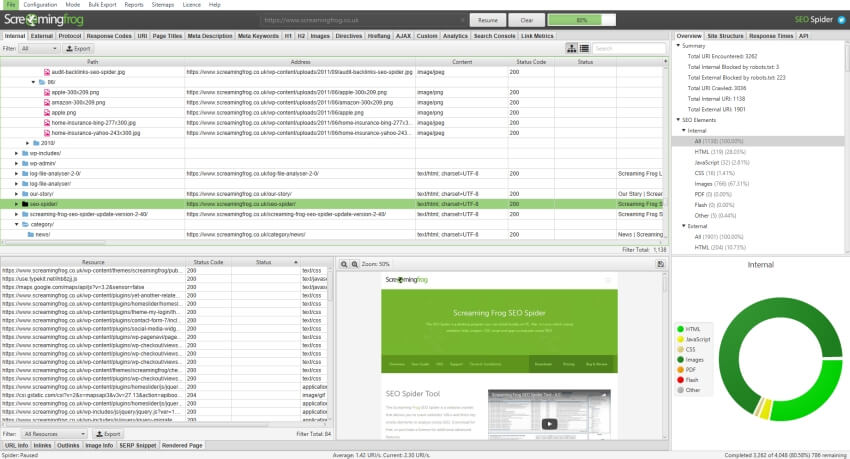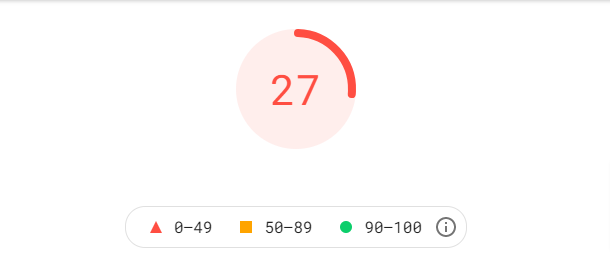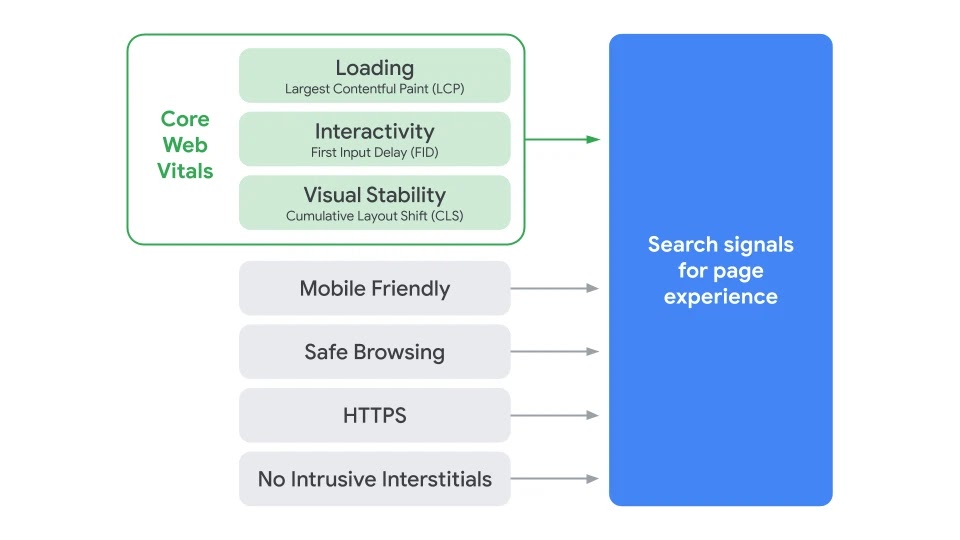How to Set Up a Successful B2B SEO Strategy
Like most things, SEO is always evolving. As search engine algorithms are updated, requirements and boundaries shift to generate helpful results for internet users. In 2024, B2B SEO strategies rely less on content volume and more on user experience, structured data and unique, expert content. We’re updating this blog to reflect the B2B search marketing strategies that work in 2024.
What is B2B SEO?
Search Engine Optimisation is a digital marketing strategy that aims to increase a website’s organic search engine rankings for target keywords. B2B SEO specifically looks for target keywords for which key decision-makers within businesses are searching.
For example, where a B2C (Business to Customer) business selling coffee would seek to rank for terms like ‘best coffee’, ‘ground coffee’, or ‘organic coffee’, a B2B selling to cafes would target keywords such as ‘wholesale coffee beans’, ‘coffee bean supplier’, and so on.
B2B SEO is one of the most sustainable ways of generating leads for B2B companies. At least 70% of decision-makers start their research and buying process with a general search online. Your target customer is finding their new supplier from search engines.
The Difference between B2B & B2C SEO
There is a lot of commonality between B2C & B2B SEO. In both, focus on on-page optimisation, carry out keyword research, build backlinks, improve technical SEO and write SEO-friendly content. Google doesn’t differentiate between B2B and B2C searches, so the ranking factors are the same.
However, B2B has a very different target audience from B2C SEO. A B2B audience is much smaller, has a much higher knowledge of the topic, and have a much narrower demographic.
All this means that the target keywords for B2B SEO have a much lower monthly search volume.
B2B keywords also have high CPC value, because many B2B companies will have more budget to invest in paid search advertising.
-
Understand Your Target Audience
With B2B SEO, figuring out who your target demographics can be a bit more difficult than B2C. It is always easier to plan SEO when you have a good idea of the kind of individual you are targeting. Create a customer persona or profile by answering the following questions about your ideal buyer.
- What industry are they in?
- How big is the business?
- What is their job title?
- How is their job performance measured?
- Who do they report to?
- What level of knowledge will they have on their specific industry?
From this profile, map out some initial ideas for keywords they would search to find your business’s products or services. This can vary a lot from business to business, so it’s difficult to generalise. Keep in mind why this individual needs your businesses to accomplish their goals.
-
Pick the Right Keywords
Build upon your customer profile by going into more depth in your keyword research.
You should aim to meet the following criteria with your target keywords:
- Relevant: The keyword should be relevant to your brand and product/service. Get in the mind frame of a decision maker – what exactly will they be searching to find you?
- Enough Volume: They have enough monthly search volume to make it worth targeting. For B2B, this could be 300, 100 or even 50. Your rates and prices will show how many leads you’ll need to bring value from SEO.
- Reasonable Keyword Difficulty: if the KD is 90, it will take a lot of work to rank for that term. If your budget is low, the KD should be too.
- Manageable Competition: If many companies are bidding for the top paid spaces in search, but you get the top organic spot, you’ve saved money.
Use these points as a guiding principle, rather than hard and fast rules. Collect keywords in a spreadsheet, together with volume, difficulty, CPC and the URL on your website to which the term relates. This will help you classify and review priorities later on.
Tools for Keyword Research
There are many various tools you can use to research keywords, some of which are right there on the results pages. Tools include:
- Google AutoComplete
- Google’s Related Searches
- Google Keyword Planner
- Google Trends
- SEMRush Keyword Tools (Paid)
- AnswerThePublic
- AlsoAsked (Paid)
- Ahrefs Free Keyword Generator
3. Map Keywords to the Buyer’s Journey
Once you have your list of keywords, you can now map them to the different stages of the buyer’s journey.
This is the marketing funnel that we all know so well, but here’s a quick review of the 4 key stages and how they correspond to SEO.
Each search term has a specific intent behind it, and keywords are organised into Informational, Navigational, Commercial & Transactional search intents. We can pair these loosely with the four funnel stages.
Awareness Stage (Search Intent: Informational)
Awareness is the information-gathering stage, where customers are looking to gain general knowledge about a topic in response to a need within their business. This will most likely apply to your broadest keywords.
Landing pages will typically be Blogs, How to Guides, and FAQs. Successful content will focus on how your product/service fits into their business needs at the broadest level.
Interest Stage (Search Intent: Navigational)
The searcher has carried out initial research and now has an idea in mind as to what product/service they need. Their searches will now be more focused, looking for specific product or service keywords.
Landing pages for this stage will be service pages and product pages. Content will need to include specific product/service keywords with as many variations as possible.
Consideration Stage(Search Intent: Commercial)
The searcher has now found the product and service they want and is carrying out further research if there are any better alternatives. They compare price, service, lead times, reviews etc.
To capture interest at this stage, make sure your website displays unique selling points, including an idea of price, third-party reviews and as much information as possible to ensure that a customer will choose you over a competitor. Comparison posts showing directly the differences between products on the market can be a key type of content to target consumers in the consideration stage.
Conversion Stage (Search Intent: Transactional)
The searcher is aware of your product or service, has considered the options and they are ready to make a purchase.
It’s crucial to make product pages and contact forms easy to find so that users can place an order.
For successful B2B SEO, make sure that you have content and landing pages on your website that target keywords at every stage of the buyer’s journey.
If you find that you are lacking keywords for a certain stage, carry out more keyword research to fill in the gaps.
4. Optimise your Product and Service Pages
Once you have your keywords mapped to important pages, you can begin to optimise them. Your main service and product pages are where compelling copy, effective user experience and technical function come together. Use these pages to showcase your product or service to potential customers, and use the keywords that you have mapped to them.
On-Page Optimisation for B2B
For the majority of on-page optimisation, this will be similar to the steps involved in optimising a B2C website. Follow the below checklist to ensure your pages are optimised fully.
- Optimise Meta Data
- Check Keyword Density
- Optimise H1 & H2 tags
- No broken or redirecting internal links
- Pages should have a crawl depth of no more than 3 pages
- Check pages reach adequate Page Speed Scores
- Include internal linking to relevant pages within the body text
- Fix any technical issues.
- Make sure pages are secure with valid SSL certificates.
- Check canonical tags are present and correct.
- Ensure all pages use SEO-friendly URL structure
- Fix any orphaned pages
- All pages should have relevant structured data
- Images are optimised for SEO
- Make sure all pages are mobile-friendly
The main difference between on-page optimisation for B2C and B2B will be the level of specific information in your content.
B2B search users often have a greater level of experience and knowledge about their search than an average B2C customer. Because of this, you will need to finely tailor your content to your audience by including detail and technical information.
5. Tailor your Content to your Audience
In B2B SEO, search users are likely to be very familiar with your industry, even at the information-gathering stage. They will immediately be able to spot a lack of knowledge on your page.
This is why it’s important to regularly check and add to your content, even if the body and structure are written by an agency. Show your expertise.
Every page should clearly state why you stand out within your industry. Demonstrate why someone should choose to work with your business.
A few ways to do this could be:
- Use social proof such as third-party reviews, industry awards and accreditations to provide assurance and build trust with users.
- Have clear CTAs across your landing pages so users know where to go next.
- Be clear about prices. If you can only show a range or starting price, be as accurate as possible.
- Explain exactly how you can help solve their problems.
As well as improving content across your main website pages, you should be looking to build additional helpful content. SEO is no longer about having hundreds of blog posts in the same format. In 2024, your supporting content should be helpful to users, such as FAQs, user manuals, product comparisons and video content.
Supporting content should also include internal links to your key landing pages.
Don’t Forget the Basics of B2B SEO
Following these steps should put you on the right track towards a winning B2B SEO strategy. However, this isn’t something you do once. After this campaign, you need to build upon its success with backlink building, regular site audits, content plans and monthly performance reviews. Maintaining your gains is a key marketing operation, and requires regular upkeep.
If you want to start improving your B2B SEO but don’t have the resources in-house, eSterling can help. We have built hundreds of successful B2B SEO campaigns from the ground up, generating positive returns for a variety of businesses.
Get in touch today to discuss whether we can help you.
How to Write Product Page Content for eCommerce Websites
Product pages are often the most important landing pages on your website. Users searching for a specific item will expect to find product pages across organic and paid search results.
Your product pages need to provide the right amount of information for users and search engines. Product pages also get leads from Google Shopping results, so it’s important to get them right. Too much, and the key information will be lost to users. Too little and they won’t be found at all.
Here’s a checklist to help get your product pages up to scratch to perform well in search.
Product Descriptions
All good product descriptions should clearly and concisely explain what the product does, and its benefits over competitors.
Product descriptions should be written for customers first of all.
- Use language familiar to your target customers: no jargon!
- Write with a clear tone of voice, persuasive wording and appropriate length.
- Use bullet points to avoid lengthy paragraphs.
- Include helpful information such as materials used, age restrictions or care instructions.
Descriptions that do this and demonstrate the clear value of your products will be a vital tool for leading your customers through the sales funnel.
As well as writing for potential customers, product copy should target the most relevant keywords that users are searching in Google. Search engine crawlers determine what a product page is trying to sell by scanning and reading the content. If you haven’t included the key terms that most consumers use in your copy and headings, you could be missing out on a lot of search traffic.
- Keywords should be included naturally into the content, and not stuffed in just for the sake of SEO.
- Anticipating alternative phrasing and user questions about your product can help build visibility for a wide range of key terms.
Product descriptions should also be unique for every product. Duplicated content can be a significant issue for SEO and should be avoided when possible, especially for large eCommerce websites.
Product Specifications & Information
Online customers are lazy. When viewing a product page, we want all the information we need up front. Having to click through to other pages to find the details is off-putting. Keep product page content as thorough as possible, with all the information clear and in one place.
Make sure you include:
- Prices
- Shipping costs
- Product size or dimensions
- Colour options
- Technical information
Including as much relevant information as possible is always useful to the customer as they can understand the product completely by viewing one page. This will encourage them to click ‘Add to Basket’ rather than view other options.
Product Images and Videos
Product imagery is the first thing a customer will notice on a product page. Make sure your products’ images look clear, desirable and as high quality as possible.
75% online shoppers have said that product images directly affect their purchasing decisions, so it’s vital to get it right.
Every image should be as high quality as possible while still staying under image size guidelines. Images that are stretched or grainy will instantly send red flags to potential customers, making your site look illegitimate.
Ensure the images are true to the colour of the product. Many people return products because they don’t look how they expected them to, particularly when the products are clothing, footwear or home decor.
A number of images showing your product from different angles is a benefit. It lends authority to your brand, and is especially important for products that appeal because of the aesthetics. Having multiple images for each product variation is also a great way to show your customers exactly what they are buying and increase engagement with the page.
You can also make image helpful, and answer questions your customer may have about a product. Showing products in use, having the ability to zoom in on the image and highlighting features are great ways to level up your product images.
Use image alt text correctly, with a description of the image. This helps users with visual disabilities understand the image, as screen-reader technology reads out the alt text. Search engine crawlers also read descriptive alt text to understand what the page is about, which will help your product page rank for relevant search terms.
Videos are another useful tool for eCommerce sites. Including videos on your product pages offers users a much deeper understanding of a product than a simple image. A video can include voice-over and in-depth product demonstrations. This can be a powerful way of showing why a customer should purchase the product and giving them confidence in what they are buying.
Product Reviews
Social proof is a powerful tool within eCommerce. Seeing what someone else thought of a product can be one of the main things that helps a user decide on making a purchase, and most people check reviews before buying online.
Reviews immediately make your future customers feel much more confident. Display reviews clearly on your product page to increase conversions and get more people to buy your products.
If you need help creating the best product pages possible, get in touch with eSterling. We are experts in eCommerce web design and digital marketing and have the knowledge and tools to help you create product pages that get users to click that buy button!
How to Choose Keywords for SEO in 2024
Targeting and tracking the right keywords brings your site the most relevant traffic possible.
On the surface, choosing keywords for SEO might seem simple. If your website sells shoes, surely it should be as easy as optimising your website around the keyword “shoes”?
Not quite. The single word “shoes” is searched 90,500 times per month on average, and results pages are dominated by big-name retailers such as Office, Schuh and Asos.
It is extremely difficult to compete for the top spot on these general search terms, but keyword research can help find more effective queries to target.
To choose keywords that will be effective for your business, you must do keyword research (or use a keyword research service). During this research, SEO experts consider:
- Search volume
- Relevance to your business
- Competition
- User Search Intent
- Keyword types, such as Long-Tail keywords
Here’s our starting guide for choosing SEO keywords that are best for your website.
What are SEO keywords?
Keywords (sometimes known as search terms or key phrases) are words and phrases that users enter into a search engine to return a set of results.
SEOs use keywords to define web pages and help target content to the largest and most relevant audience possible.
By understanding the keywords that people use to find products and services like yours, you can optimise your website to capture as much relevant search traffic as possible.
Find the right keywords through keyword research.
Search Volume
Search volume is the total number of searches for a given keyword.
For example: according to the latest data, the keyword “star wars” gets an average of 110,000 searches a month in the UK. But how many of those 110,000 are looking for Star Wars toys, merchandise, streaming or just general information about the movies? Judging by the peaks that coincide with release dates in 2005, 2016, 2017 and 2019, it’s information about the movies.
While it is important to target keywords with the highest search volume possible, balance search volume with relevance to your brand and offering.
Keyword Relevance
Relevant traffic will come from users who are looking for the exact information or product your website is providing. They are more likely to buy from you than those who looking for something else.
Although a keyword may have high search volume and low competition, it’s not worth targeting unless it matches the content your website is offering. Otherwise, it won’t bring in useful traffic.
High search volumes often appear for terms with ambiguous intent. Understanding more specific search terms helps you understand the phrases ideal customers are using to find products like yours.
For example: imagine you have an eCommerce site that sells running shoes designed for gym and exercise use.
Tracking and targeting the keyword “shoes” would not be worthwhile. Although it has a high search volume, this keyword is too general and may draw users whose search intent doesn’t match the specific content your page provides.
“Running shoes”, “Gym shoes”, and “shoes for the gym” are all key phrases that have a stronger association with your product.
Research specific terms that describe your product or service well.
Keyword Intent / Search Intent
Understanding why a user is making a search is vital for SEO – are they looking for a specific product? Do they just need some information on an event? Are they looking for contact details?
There are four types of searches (according to Google)
Navigational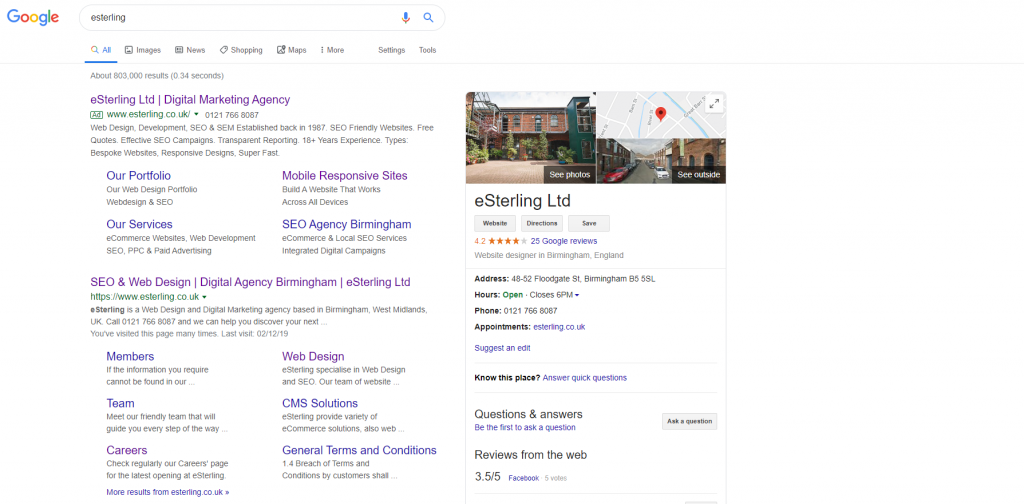
The intent is to reach a particular website or brand. Navigational searches could be terms such as “amazon” or “nike running shoes”.
Informational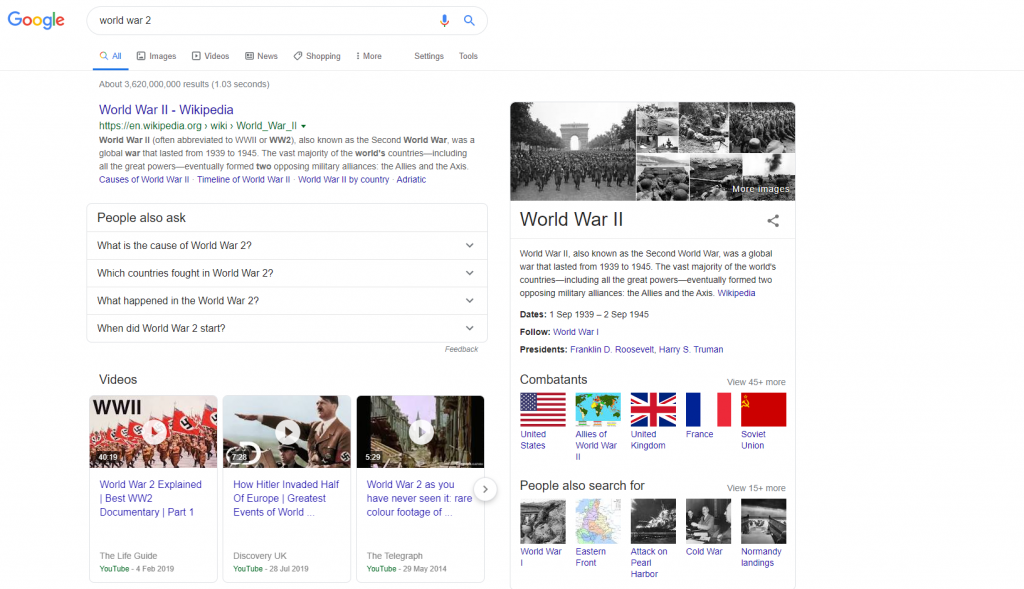
Informational searches are when users are looking for guidance, background information, or specific information about a topic or product without having any concrete intention to purchase or any wish to seek out a specific page.
Transactional
Search requests that indicate a clear intention to purchase are regarded as transactional queries.
Commercial
This is a more recent addition, and describes search terms used by those who want to compare different options before making a purchase.
Commercial search term users are higher up the customer journey funnel than those using ‘Transactional’ search terms, so these queries often return comparison articles, reviews and testimonials.
Through machine learning, Google attempts to understand the intent of searches and returns results that are the closest match to this intent. By looking at the results for a certain keyword, you can get an idea of what a user’s intentions are when they use it.
This is important when choosing keywords. Commercial and Transactional search terms are worth targeting and tracking to increase business.
Keyword Competition
It’s important to consider which competitors are appearing for your chosen keywords. If the first page of Google is dominated by Amazon, eBay or equally as large companies, it may be difficult to outrank these sites.
This isn’t to say it’s impossible but, especially in the early days of an SEO campaign, it may be better to focus your efforts on less competitive keywords.
Research similar-sized competitors and see what keywords generate organic traffic for them. Do you rank for these keywords?
Long-Tail Keywords
Long-tail keywords are longer, specific phrases that narrow down the pool of results.
They are less competitive than shorter keywords, and although they have lower search volume, those using them are more likely to convert to purchase than those using shorter terms.
While your main pages should target simple, high-volume terms that match your products, long-tail keywords provide quality traffic that is extremely relevant. They also help you stand out from your competitors who are only targeting generic shorter terms.
To return to our example of the eCommerce running shoes site, examples of long-tail keywords would include:
- “Running shoes for gym size 5”
- “Ladies black running shoes”
- “Good workout shoes for the gym”
- “Trainers for weightlifting and cardio”
Target long-tail keywords with subheadings on your main pages or content in your blog section.
If you are still having trouble choosing the best SEO keywords, contact eSterling.
As part of our SEO services, we use industry-leading keyword research tools to uncover exactly what you need to target to bring in the most traffic possible.
Give us a call on 0121 766 8087 to discuss how we can help your website reach more people.
How to Improve Page Speed (and Why it’s Important)
Improved Page speed has been a direct ranking factor for Google since 2010, and it’s only become more important.
On both desktop and mobile, faster-loading websites are more likely to rank highly on SERPs than slower pages with similar content.
Simply put, page speed is important because a slow website can hurt your search engine rankings and reduce traffic.
What is page speed?
Page speed, in its simplest terms, can be defined as the time it takes for a website page to load.
Page speed can have a few definitions, but the definition Google uses is made up of 3 metrics: first contentful paint, largest contentful paint and cumulative layout shift.
First contentful paint (FCP): the time it takes to load the first element of any content on a page. This includes images, text, header bars or canvas elements.
Largest contentful paint (LCP): the time it takes to load the main content of the page.
Cumulative layout shift (CLS): a measure of how much the page layout shifts during browsing, such as if the banner loads and pushes text down the page while the user is reading it.
Google uses these metrics to generate their page speed score – which you can test with Google’s PageSpeed Insights.
Faster Loading Speed = Better User Experience
The impact of page speed on search rankings isn’t automatic. A fast page has a better chance of reaching the top 3 than a slow page with similar content. This is because fast loading indicates a better experience for the user, and that is the ranking factor.
Faster Loading Speed = Cheaper AdWords Bidding
Speed also has an impact on PPC performance, as a slower site can also decrease your Google AdWords Quality Score. A lower quality score makes it more difficult and more expensive to bid for the top positions in Google’s paid results, so it’s worth optimising your page to make your budget go further.
Faster Page Speed Reduces Bounce Rates And Increases Conversions
A faster LCP reassures users that the page is useful and easy to navigate. It’s not useful to rank No.1 if users then struggle to navigate.
A slow site is difficult to use, which you’ll know if you’ve ever had to try and click through a site which takes more than 5 seconds to load. People lose patience quickly because websites are supposed to flow seamlessly.
The impact of this is magnified on mobile:
According to Google Consumer Insights, 53% of mobile visitors leave a page if it takes more than 3 seconds to load.
Slow pages increase your bounce rate and lower your conversion rate considerably, particularly if you are an eCommerce site. The opposite is also true.
Fast loading times keep users engaged, meaning they stay on your site longer and are more likely to complete the customer journey.
For instance, in 2019, eBay ran a companywide push to optimise speeds on all pages. For every improvement of just 100 milliseconds in search page loading time, eBay saw a 0.5% increase in their “Add to Cart” count.
To Improve Page Speed, Minimise HTTP Requests
To speed up loading times, remove unnecessary elements that can bog down the browser. This may be more complicated than it sounds, depending on how your site has been built.
HTTP requests occur when a browser requests files from the website’s server to load the websites. The server sends the files, the browser downloads them and the user can interact with the website.
While this happens relatively quickly, the browser can only retrieve one asset at a time.
The more files required, and the larger they are, the longer this takes.
Fewer and smaller files mean websites load faster.
1. Minify & Combine Files
You can easily combine multiple CSS and Javascript files to reduce the quantity. However, this just makes one big source code file, which may take equally long to load.
Minification optimises your source codes to make them as lean as possible. Removing all unnecessary characters, such as white space, comments and readability data, makes the file smaller.
Minifying source code is a function of many website themes and caching plugins, but if your website is not so straightforward you may need to contact a developer.
3. Enable Compression
Compression is a method of reducing file sizes to retain necessary data without slowing things down. High-resolution image files are a good example that we often find on slower sites. Images compress easily, reducing the bandwidth required for loading without noticeably reducing the image quality.
By enabling page compression in the backend of your website, you should see a good reduction in LCP speed.
4. Enable Browser Caching
Rather than repeatedly requesting the same files from the server, browsers cache important data from websites they have visited before. This means they keep some documents locally so that when the file is requested it can load immediately.
If your website does not allow browsers to cache, your page speed and your user’s experience suffer.
5. Disable Unnecessary Plugins
If you’re using a website builder such as WordPress, your website probably has some Plugins to help it function. However, not all Plugins are necessary. Browsers have no way of knowing whether a Plugin is necessary or not, so they request and download everything to load the page.
By disabling the Plugins you don’t need, you reduce HTTP requests significantly and speed up the web page loading speed.
Every website is different, so diagnosing speed issues properly requires the knowledge of a skilled web designer or developer.
There are always more ways to optimise page speed, but these methods are good places to start.
The team at eSterling can help you improve your page speed, so come and talk with our expert designers and developers. We have the knowledge and skills to quickly identify any issues preventing your site from loading at the optimal speed.
If your site is scoring low on Google Page Speed Insights, call eSterling now on 0121 766 8087. We’re happy to advise on improving your site’s performance.
SEO vs PPC: Which is Better for My Business in 2024?
When putting together your digital marketing budget, one key decision is whether to invest in PPC (pay-per-click) ads, SEO (search engine optimisation) or both. Comparing SEO vs PPC concerning your business needs can give a clear picture of what will and won’t create the desired results.
Ideally, the most effective strategy is to invest in a combined PPC and SEO campaign. The two work well together to help you dominate search results in the long term, gaining customers from your competition. However, the reality of marketing budgets may limit your strategy to just one of the two.
This guide will define SEO vs PPC and give you the pros and cons to help you decide which will best fit your marketing goals.
What is SEO?
Search engine optimisation (SEO) is an ongoing process of amending your website and pages to communicate with search engines more clearly than your competitors. This process helps your website and pages appear in the top organic search results for relevant queries.
Organic rankings are search results that can’t be changed by paid advertising.
Search engines rank organic search results according to their relevance to the search term. Rather than paid advertising, SEO puts your brand at the top of the search results more organically: with mobile and load-time-friendly sites that showcase their products and services to both Google bots (which crawl your website) and users. Ensuring your website is user-friendly with useful information and few technical errors is a key requirement for a well-optimised website.
On-page SEO
One piece of the SEO puzzle is on-page SEO, which focuses on the elements shown on the front end of the website. There are many factors to on-page SEO. With the recent helpful information update, rolling out on-page SEO is more important than ever.
These on-page factors are where keywords come into play, and we can place keywords strategically to give search engine crawlers the clearest picture of what the page is about. These include:
- Content: High-quality, original and helpful content, always gains organic keywords, so the keywords gained must be relevant to your ideal customers.
- Headings: Breaking up content with headers makes it easy to scan and understand, helping people stay on your page longer. This helps at the consideration stage of the consumer funnel.
- Meta tags and descriptions: These appear in SERPs to give more information about the page, but they also tell search engine crawlers how to index your page.
- Images and Alt Text: Ensure your images are high quality, in the right format and named with keywords.
- Site structure: Pages should fit together in a logical, easily navigated way, for both users and search algorithms.
- Internal Linking: Including links between key parts of your website helps user navigation and search.
Getting the balance between user-friendliness and search optimisation is the key to high-ranking pages. Google’s Helpful Content Update(August 18th 2022) has changed the way SEO works when it comes to content. You can’t simply rewrite other people’s articles, or use AI extensively because Google won’t rank it. For great on-page SEO, a specific target audience can help create content that works to bring in quality traffic, using the keywords your audience uses and focusing on the problems they want to solve.
Off-page SEO
This is the secret sauce of SEO – focussed on building your website’s authority and credibility beyond content and site structure. This is how a search engine determines whether your website is worth ranking highly for keywords where there is high competition.
Off-page elements include:
- Backlinks and referring domains: quality links from reputable websites show that your website is a valuable source of information.
- Content marketing and social media engagement: sharing your content on a range of platforms encourages others to link to your website and builds up your rankings indirectly.
While there are fewer parts in off-page SEO, this key phase is just as challenging and requires a professional understanding of industry publications, audience management and social media.
In this way, a good SEO strategy provides a firm foundation for marketing, building your brand reputation as well as your search rankings. This makes SEO a powerful marketing technique for long-term results.
Pros of SEO
Low Cost: SEO is generally a lot more cost-effective than other forms of digital marketing, in particular PPC and Google Ads. You don’t pay for people to click on links to your website when you rank organically. SEO provides big opportunities for a great ROI in the long term.
Scalable: Once you have gained first-page rankings for high-volume keywords, you can build on this success and look at other areas to target. Good performance in SEO provides a great foundation for further digital marketing strategies provided you have the right strategy.
Higher Click-Through Ratio: Generally, users will be more likely to click on organic results than paid results, which many people ignore.
Branding: Aside from more traffic, high search rankings give your business and brand more visibility online. Many users trust organic results more than ads, and you can quickly build a reputation as a leading provider of a product or service if you rank highly for several keywords. The quality of the website, content and backlinks that are required for high search rankings have knock-on effects on your overall brand reputation. Your site appearing first can influence your perceived credibility with an audience looking for your product service.
Sustainability: Once you have achieved high rankings and have an ongoing SEO strategy in place, your competitors can’t simply outbid you to appear higher up. They will need to invest a lot of time in developing their site to knock you off the top spot.
Find out more about our strategies for SEO or contact us to talk it through.
Cons of SEO
Long Term:Results from SEO can sometimes take 3-6 months to generate results. If you only have a short window to see returns from your marketing, SEO may not be the best option. However, once your website has gained a significant ranking for high-volume key terms, this is fairly easy to maintain, bringing traffic to your site for the foreseeable future.
Not always viable: For the majority of businesses, SEO is an invaluable tool in their marketing arsenal. However, a small number of companies may not see the same benefits; their industry is too competitive in search or their product/services just don’t get enough search volume.
What is PPC?
Pay-per-click (PPC) is an advertising model where your website pages are displayed at the top of search results, marked as ‘sponsored’ or ‘advertising’. Google displays your ads with a link to
your website, and you only pay when a user clicks through to your site. This is typically associated with search engine advertising like Google Ads or Google Shopping.
A Strategic Approach for Google Ads
When creating a Google Ads campaign, we start with keyword research and organise the terms you want to target into the ad groups that will sit in your campaign. Once the campaign is live, you can manage this with a daily budget and set a cost-per-click limit, which stops the cost from spiralling. Your account will start spending money once a user searches and clicks on your ad.
We recommend starting at a lower budget for the first month or so, as your campaign will be in “learning mode” for the first six weeks. This means that Google is learning about the users searching for your ads, feeding into an algorithm to help Google determine if the user is in the awareness or consideration stage.
Once you start to receive conversions, you can either choose to focus on increasing conversions or traffic to your site.
Choose Your Keywords
With Google Ads, you are in complete control of what keywords your website shows up for on Google. There are three types of match types: broad, phrase and exact.
Broad: Shows your ad to searches that are relevant to your keyword
Phrase: Shows your ad to searches that include your keyword
Exact: Shows your ad to only those searches that are an exact match to your keyword
You need to ensure that you are keeping on top of your search terms with your campaigns. Removing any irrelevant keywords into a negative keyword list helps keep your campaign working effectively. You can find out more information on Google Ads management online here.
Pros of PPC
Quick Results: PPC can generate traffic results much faster than SEO. PPC can take 6-8 weeks to show measurable results, which makes it a good choice for businesses that need short-term results and a quick ROI.
Position on Results Page: Google Ads now take up a large portion of search result pages, generally in the first four positions. Although users tend to click on organic results more often, being able to occupy the top of a results page for your chosen keyword can be a massive boost to both traffic and authority.
More Specific Targeting: With PPC ads you can filter the users you target based on age, location and demographics. You can make sure you are only paying for the traffic that you want on your website.
Range of Channels Available: Google Shopping Ads, Display Ads and Text Ads are all forms of PPC advertising. Investing in PPC marketing gives you the option of trying these channels and seeing what works for your business.
Find out how our team use PPC & Adwords for fast traffic boosts.
Cons of PPC
Can Be Costly: Depending on the competition in your industry, PPC can be expensive. Extremely competitive industries such as Law Services or Insurance can have very high costs per click. Keep this in mind if your marketing budget is tightly controlled.
Higher Initial Investment: Although PPC can get results immediately, to optimise your account you need a lot of data on clicks and conversions. This means that initially, your initial cost per conversion will be higher than it will be once the campaign has progressed and begun to generate data. You will need to be realistic about how long it takes to optimise a PPC campaign.
Is SEO or PPC right for my business?
This will largely depend on your industry and business and you will need to weigh up the above pros and cons and see how they fit in with your business.
SEO is low-cost, long-term brand building that helps your website perform at the best possible level.
PPC is a variable-cost, high-impact option that quickly builds awareness and traffic to your site, but may not be sustainable long term.
What we find at eSterling is that you can mitigate the cons of SEO with good PPC and the cons of PPC with good SEO. For example, a PPC campaign can plug the gap between starting SEO and seeing lasting results. Marketers will need to weigh up all of this against business needs and goals.
Questions to ask to decide between PPC vs SEO
These questions will show you the way: SEO, PPC or Both?
Do you need quick results?
If you want to increase traffic and sales immediately, PPC might be the right direction. PPC allows you to drive targeted traffic towards specific pages on your site. Before you start with your Google Ads journey, you should make sure the landing page is set up for conversion tracking and have relevant information to help users convert.
Is competition for organic search results high in your industry?
Using tools like SEMrush, we can measure the relative competitiveness of each keyword in your industry and establish the likelihood of ranking organically with your current domain authority and backlink profile.
If most of the keywords relating to your products or services are highly competitive, SEO may take a long time to have an impact. This is because we will need to focus on building overall domain authority. A PPC campaign can fill the gap before an SEO campaign creates results.
What are competitors paying for ads?
Using the keyword planner tool on Google Ads, you can see the average cost-per-click (CPC) to be at the top or bottom of search results. This gives you an idea of how much you will be paying per click. You can set a maximum cost-per-click budget on each campaign or bid manually, which will give you complete freedom to ensure each keyword has an individual budget. Manual cost-per-clicks is recommended for small campaigns only.
You can also get an idea of how much competitors are paying monthly on SEMrush by viewing their organic and paid search results. This is a rough estimate and not 100% accurate but it can be helpful to figure out how much you should be spending a month. If your competitors are paying huge amounts, PPC may not be the most cost-effective strategy and you may be better off with SEO.
How much is your digital marketing budget?
Comparing SEO vs PPC for your business also depends on your own marketing budget and the competitiveness of the keywords you are looking to target. For PPC, we always suggest that you start small and increase your budget slowly over the first three months of running your campaigns. £500 a month is the best starting point for most industries, it gives you the flexibility to trial your keywords at a reasonable price while allowing Google’s algorithm to direct users to your ads.
As for the first month or so Google is in learning mode, you may find a lot of budget is going to waste through irrelevant searches, so start small and making sure you are keep on top of your negative keyword lists. Having the correct conversion tracking set up is key so you can analyse which keywords are gaining sales. You should only consider spending more on PPC once you have results, and then reviewing what your monthly budget should be.
Comparatively, strong SEO may be more cost-effective than PPC, because you can reach the top of the search results for terms that are expensive when targeted for paid ads. Given that most users prefer organic search results over ads, you can gain traffic without paying for clicks.
We Can Help You Choose
If you are still unsure about what direction to take your digital marketing campaigns in, eSterling can help.
Our dedicated marketing are experts in both SEO vs PPC campaigns. We can offer free advice on what is best for your business to guide you to the channels that will get you the best return on your investment.
Contact the eSterling team now and we will be happy to help with any questions you might have.
9 Signs That It’s Time To Redesign Your Website
As customer expectations move at the pace of the web, letting a website linger way past its sell-by date will have a lasting, negative impact on your business. Deciding when to start again can be tricky, so we’ve put together a guide to summarise some of the signs that show it is time to invest in a brand-new website.
In 2023, we know it’s never “just a website”. In most cases, your website gives people the first impression of your business, so having an up-to-date, user-friendly and fast website gives you the best chance to generate more business.
Quick Check: Why might I need a new website?
You know it’s time for a new website when yours is:
- Dated
- Slow
- Difficult To Use
- Doesn’t Render Correctly
- Not Mobile Friendly
- Hard To Update
In this guide, we’ve put together 9 reasons businesses need a new website so that you can assess for yourself whether it’s time to get a redesign. Many of these are rooted in the expectations of potential customers searching online today.
Here, we’ll cover the 9 reasons to get a new website:
- Your website looks dated
- The site is no longer fit for purpose
- Your competitors are way ahead
- You’ve not updated your website for a long time
- Your website isn’t easy to use on mobile devices
- It’s slow to load
- Customers find it difficult to use
- Your Employees find it difficult to use
- Employees are spending a long time working on the website
1. The web has moved on, and your website looks out of date.
The online industry moves at an incredible pace. There are new web design trends, techniques and layout options almost daily, so it is inevitable that your website will be out of date to a degree, and there is no getting away from this. Sure, you can re-skin a site and patch it up, but you’re essentially putting a plaster on it until the next time, and it will cost you more in the long run.
While some website trends come and go, it’s clear when a website looks dated. Customers searching for the first time make huge assumptions based on the quality of a website, and one that looks more suited to 2013 than 2023 will turn people off, losing potential business. But how can you tell which website trends are worth pursuing, and which will simply date your website further in a few years’ time?
Rather than falling for the ‘wow’ factor, this checklist helps us identify the trends that are here to stay:
Does it improve the User Experience? If it helps people navigate your website better or have more enjoyment from using your site, it’s worthwhile.
Does it improve website performance? A new design could decrease loading times, or help the website function in a more integrated way.
Would the website be a success without it? If it ain’t broke, don’t fix it – there’s no point in adding superfluous trendy features to an already successful website. But if it could be the lynchpin that holds the whole user experience together, go for it!
Does it help the site achieve its goals? Bespoke website design rejects the idea that there’s a one-size-fits-all formula for every business’s website. Each design is grounded in the specific goals of the business, guiding us to choose only the features that will advance the site towards them.
Using this checklist, I have been able to utilise existing new trends which are of benefit to the site as a whole and understand which trends to dismiss.
2. The site is no longer fit for purpose.
 Sometimes the lack of functionality of a website is affecting the day-to-day running of your business, or you can identify holes in the online ordering process. When this happens, the site is working against you, rather than attracting and converting customers.
Sometimes the lack of functionality of a website is affecting the day-to-day running of your business, or you can identify holes in the online ordering process. When this happens, the site is working against you, rather than attracting and converting customers.
Your website should work with your business, not produce problems and extra work for employees. It can often be frustrating if you are constantly working around your site or having to change your workflow because of it.
If your website no longer works for you but against you, it’s time for a redesign.
3. Your competitors are way ahead.
 This is a particularly tricky arena. Sometimes following the trends of the market leaders can reap excellent rewards because your new client base will already be familiar with the look and feel of your website, and it will reflect a professional approach to your business.
This is a particularly tricky arena. Sometimes following the trends of the market leaders can reap excellent rewards because your new client base will already be familiar with the look and feel of your website, and it will reflect a professional approach to your business.
On the other hand, trying to keep up with competitors can lead to looking the same as everyone else, which is just as unhelpful as having a dated site. Rather than simply copying your competitors, updating your website can help your brand to stand out from the crowd.
We achieve this with a Design-First approach, putting the needs of your customer and their journey through the site before aesthetic changes.
This is the same approach used by Apple in the 90s when they decided to produce desktop machines that looked totally different to the beige boxes that were on the market at the time. Apple pivoted to emphasise design-led products and reaps the rewards to this day.
The decision to update in line with competitors or innovate to stand out normally depends on what market sector your business is in, so consult a web design expert to find the best approach for your business.
4. You’ve not updated in ages
 The average lifespan for a well-designed website is normally 3-5 years, depending on the sector and competitors. In all honesty, if you had a website built yesterday and it was built poorly, it’s already time for a redesign! The day-to-day operations of your business can take up a lot of time, but without showing your prospective customers a professional and usable interface, you will struggle to gain their trust and increase purchases.
The average lifespan for a well-designed website is normally 3-5 years, depending on the sector and competitors. In all honesty, if you had a website built yesterday and it was built poorly, it’s already time for a redesign! The day-to-day operations of your business can take up a lot of time, but without showing your prospective customers a professional and usable interface, you will struggle to gain their trust and increase purchases.
Your website should be your statement: your first impression. If it’s dated or, worse still, broken or not rendering correctly in modern browsers, it will be harming your image and your reputation as a business.
As developments in website creation, browsing and hosting capabilities progress rapidly, the longer you leave it to update your website, the more problems will arise. For example, if your website is using a payment method that hasn’t been updated since 2019, most likely it is not compatible with SCA (Strong Customer Authentication) systems such as 3DS2.
Using an outdated, non-compliant payment method is problematic for your customers and your business, as customers will be unable to pay, get frustrated and leave. We recommend simply using up-to-date payment methods that allow quick checkout. The best of these are self-contained and protected under a green lock (HTTPS) SSL certificate.
5. Your website isn’t easy to use on mobile devices
 Ensuring your site can adapt to mobile phone screens, accounting for the differences in dimensions and orientation, is particularly important in today’s mobile markets. Responsive web design is a standard these days because almost everyone searches for services and products on their mobile phones more frequently than on a desktop computer.
Ensuring your site can adapt to mobile phone screens, accounting for the differences in dimensions and orientation, is particularly important in today’s mobile markets. Responsive web design is a standard these days because almost everyone searches for services and products on their mobile phones more frequently than on a desktop computer.
If your website is not responsive, users will need to scroll sideways or zoom in to read the text. But mobile users are all about convenience. Rather than going to the extra effort, people will simply move on to one of your competitors. It is absolutely paramount to have a website design that can provide a positive user experience on every device, using responsive design.
6. It’s slow to load
 Websites that take more than 3 seconds to load lose potential customers quickly. With millions of search results, at least 53% of users will simply click on the next link instead of waiting for a slow website, so it’s important to get this fixed quickly.
Websites that take more than 3 seconds to load lose potential customers quickly. With millions of search results, at least 53% of users will simply click on the next link instead of waiting for a slow website, so it’s important to get this fixed quickly.
However, it may not be as simple as patching or reducing the number of plugins. Your website might need an updated CMS or a full overhaul to get speeds up to scratch.
It’s easy to assess your website’s speed with tools such as PageSpeed Insights. If you find that things are taking a while to appear, it’s worth speaking to a web designer who can advise as to what is slowing your website down.
7. Customers find it difficult to use: You need UX Design
 User Experience (UX) is important to factor in when deciding whether your website needs a redesign. If it’s too difficult for visitors to your website to find what they need, purchase products or understand what your services are, you are missing out on potential business. The journey from your homepage or landing page to the checkout or enquiry can be simplified and directed even if your offering has many complex layers, with some clever UX design.
User Experience (UX) is important to factor in when deciding whether your website needs a redesign. If it’s too difficult for visitors to your website to find what they need, purchase products or understand what your services are, you are missing out on potential business. The journey from your homepage or landing page to the checkout or enquiry can be simplified and directed even if your offering has many complex layers, with some clever UX design.
This usually involves creating an easy-to-follow “navigation flow”. If the flow is interrupted or not fluid, visitors can be frustrated and have a tendency to leave. In certain situations, there are accepted standards and habits that customers follow which we can play into to create easy navigation. For example, an eCommerce platform usually shows the cart or basket icon visibly in the top right of the page.
If your eCommerce site makes the customer search for the basket or scroll a long way to add products to the basket, or if the information around product pricing, VAT or deliveries is difficult to find, then your customer will struggle to complete the purchase, and you lose the sale.
8. Your Employees find it difficult to use: You need an up-to-date CMS
 Using a Content Management System (CMS) that is not intuitive can also lead to frustration, delays and damage to your visibility online. With a small amount of training, you should be able to manage content on your website yourself, adding blog posts and new product pages in a few easy clicks via the admin area.
Using a Content Management System (CMS) that is not intuitive can also lead to frustration, delays and damage to your visibility online. With a small amount of training, you should be able to manage content on your website yourself, adding blog posts and new product pages in a few easy clicks via the admin area.
But if your CMS is out of date, it may not be user-friendly and require a more specialised operation, costing you more in the long run and leading to struggles further down the line.
9. Employees are spending a long time working on the website
 Even with a usable CMS and appropriate training, there may be long processes of updating the website which can now be solved. For example, your website may be requiring a lot of manual work from you and your team to process enquiries and orders.
Even with a usable CMS and appropriate training, there may be long processes of updating the website which can now be solved. For example, your website may be requiring a lot of manual work from you and your team to process enquiries and orders.
New integrations and automation options are being released all the time, so it may be worth updating your website to make the most of these algorithms, APIs and widgets.
If you can relate to any parts of this post, then you already know whether or not to redesign.
Having a new website built begins with an aim: a purpose. One of the first questions we ask is: “What do you want your website to do for your business?” and we go from there.
A new website can be tailored specifically to your goals, whether it’s lead generation or helping customers find information easily. A website redesign can help with:
Improved Branding: An updated website with a modern design can promote trust and brand recognition among consumers and improve the overall design and quality of the website can help to evaluate the trustworthiness of the company, thus enhancing the brand image and keeping the business relevant.
Smooth information flow: The core goal of a website is to provide information that helps visitors learn more about the business, products/services, and ultimately close deals, by having an optimal information flow and a website redesign can help to structure and present the information in a way that all the important stuff is easy to find.
Reduced business costs: A complete website redesign allows for re-evaluation of hosting and CMS, can run more efficiently, save costs in the long run, and cut costs of missed opportunities and lost revenue caused by an outdated website.
More sales and business: A website redesign allows you to make conversions the primary focus by presenting a flow of information that guides visitors towards actions such as purchase, subscription, or request for more information, which is something that older websites often fail to do effectively.
If you’re hoping a new website will help you gain business via search inquiries or if you just want more traffic to your website, you may be looking in the wrong place. In this instance, I would advise you to read about Search Engine Optimisation first, before completely rebuilding a possibly perfectly good website.
To get the most out of your website design, make sure your designers understand your requirements, functionality and sitemaps. Be open and honest and set goals. Take advice and, if it is in line with your website’s goals, then go for it! Employ designers and developers that have a track record of delivering. For that reason alone, eSterling is a great place to start.
The switch from Universal Analytics to Google Analytics 4 – What is it and how does it affect you?
Google recently announced that, from July 1st 2023, standard Universal Analytics properties will no longer process data… but what does that mean and why does it matter to your business?
What is Google Analytics 4 (GA4)?
Your business’ traffic is currently being tracked using Universal Analytics, this has been the standard for the past 10 years. However, Google Analytics 4 is the next generation of Analytics; it comes with more accurate and powerful data tracking which will be highly beneficial to us and to you during our SEO efforts.
The key new features of GA4:
- We will be able to track a lot more data compared to Universal Analytics
- We can gain so much more insight about what users are doing on your site
- More integrations with Google Ads
- Updated more secure tracking
- Analytics tracking that complies with GDPR and User Privacy
Why do I need to switch to GA4?
Since Google will no longer track any further data come July 2023, we would no longer have access to newly tracked data if you choose to not switch. This means that we could no longer report on the number of visitors who view your website, or how they access your website.
What is required to update from Universal Analytics to GA4?
First of all we need to update the tracking codes across your website, with new tracking codes provided by google after creating a GA4 profile. This is then added to the website using the below process.
- Create a google tag manger account and add ga4 code via this tag manager account.
- Setup conversion tracking on the new ga4 platform to tracking user events that generate user conversions. This can include:
- Contact form submissions
- Phone call clicks
- Website sales
- Exclude internal traffic for us and yourself, so that we don’t track data from our usage on the website.
We then need to create bespoke reports on the GA4 platform to generate the data that is important to you, as GA4 doesn’t have the same kind of standard reporting that universal analytics has.
More information on this change from google can be found here.
Google Announces Retirement of Universal Analytics – What You Need to Know
Recently, Google announced that they would be discontinuing Universal Analytics (Google Analytics 3) from the 1st July 2023, replacing it with their new Google Analytics 4, which was launched in 2020.
You may be wondering what this means for your website analytics, as most websites still rely on GA3. With this post we hope to answer a few of your burning questions.
How is Google Analytics 4 Different?
Although the premise of Google Analytics 4 is the same as Universal Analytics, much of the interface and data collection methods have changed.
In GA4, rather than tracking individual metrics such as page views, it focuses on events such as user engagement. This includes metrics such as clicks and scrolling which offers a greater insight into your users’ actions. These new metrics mean that the generated reports have changed.
As some metrics have been removed and new ones added, the reports generated by Google Analytics have changed as well, with more focus on user engagement. There is also a new reporting interface that allows you to create your own custom reports using the new metrics. Although this is a process that requires some learning.
This move to Google Analytics 4 demonstrates Google’s dedication to improving user engagement and experience.
How Much Longer Can I Use Google Analytics 3?
After the 1st July 2023, Google Analytics 3 will no longer track your website traffic and data. This means that technically you will be able to use GA3 up until this point. Following on from this, although GA3 will no longer analyse your website, it will continue to store your history allowing you to view your previous data.
However, this means that comparing your current performance with your history will become more difficult.
The last date you will be able to send data into Universal Analytics will be the 30th June 2023.
When Should I Make the Move to Google Analytics 4?
Despite Google Analytics 4 being a direct move from Universal Analytics, your history will not be transferred over. This means that if you wish to compare your current performance with your history, as mentioned above, it will be a more difficult process.
To ensure that you get the most out of Google Analytics 4, you should consider making the move sooner rather than later. Comparing your history with your current performance is a key metric within GA as it provides crucial insights into improvements and issues with your website.
What Should I Do Now?
At this stage, you should set up and configure a Google Analytics 4 Property ASAP, as this will allow you to gather data before Universal Analytics is turned off.
If you wish to know more about the process of making the change to Google Analytics 4, or need help setting up a GA4 property then please contact us and we will begin the process.
Ultimate Guide to SEO for eCommerce Site Migration
Migrating your eCommerce site to a new platform or design can come with a host of benefits – from increased functionality, better security, improved user experience and other advantages that could help your online revenue grow.
However, an experienced digital marketer will tell you that migrating an eCommerce site can come with a lot of pitfalls that can spell disaster for SEO performance, so it’s best to prepare properly. Site migration SEO is an important area for eCommerce businesses developing a new website, as neglecting this part of the migration could lead to a loss in organic traffic.
To help with this process, we have put together the ultimate guide to SEO for eCommerce migration. If you follow this checklist, you will be less likely to see in a drop in your organic rankings and traffic and may even increase your sales.
It should be noted that each migration is different, bringing its own host of challenges. This guide will outline the general issues that site migrations face, but you might also consider challenges arising from changes to your domain name or payment gateway, switching from HTTP to HTTPS, or other irregular changes.
The steps that apply to most migrations can be divided into Preparation, Comparison and Post-Launch. To help make sure you take appropriate action at each stage of your site migration, here’s a quick checklist to refer back to later:
- Preparing for Site Migration
- Crawl your current site
- Create Benchmarks:
- SEO Performance
- eCommerce Data
- Backlink Profile
- Compare Live Site and Staging
- Map Redirects
- URL Structure
- Internal Links/Site Structure
- Review Metadata
- Review Content
- Review On-page and Technical SEO
- Copy Schema Markup
- Page Speed
- User Experience
- After Site Migration
- Pre-Launch Checks
- Site Speed Test
- Monitor SEO Performance
Preparing to Move
These steps should be the first thing you do and can be done before work has even started on the new version of the site.
Crawl Your Current Site
“Crawling” refers to an algorithmic process that checks all your site URLs and how they are structured. Search engines crawl every web page to index them against relevant search terms, based on the technical data and content of each page. Finding out what information search engines gain from your current site is a useful first step in maintaining SEO through the site migration process.
Screaming Frog is a widely used tool that crawls all URLs on your site and lets you analyse all technical and on-page SEO data. Other tools are available to do this, but Screaming Frog is free up to 500 URLs and is relatively simple to use and understand.
It’s important you crawl your current site to obtain a list of all your current URls as well as SEO data about those URLs. This data can be used for comparison and benchmarks later on and includes:
- Metadata – information that helps search engines determine topical relevancy, this can be descriptive, such as a page summary or image alt text, or structural, such as how information fits together with the rest of the site.
- Canonical Tags – code that helps search engines identify the main version of a page among many similar pages.
- H1 & H2 Tags – HTML tags that show page hierarchy and the main topics of the page.
- No-index pages – pages blocked from search indexing, such as shopping cart or checkout pages on eCommerce sites.
Benchmark SEO Performance
Using tools such as Google Analytics, Google Search Console and your other SERP tracking software, take a snapshot of performance to benchmark how your site performs in search engines.
Make a record of the key metrics for your existing site, including:
- Organic traffic: how many users land on the site through search engines?
- Session Duration: how long do they stay on the site?
- Bounce Rate: what percentage navigates away without viewing other pages?
- Pages per Session: How many pages does the average user view each session?
- Devices: what devices do they view your site from?
- Top-ranking keywords with the highest monthly search volume
All of this data can be tracked and compared once your eCommerce site migration goes live.
Benchmark eCommerce Data
As well as benchmarking your SEO performance, you should export as much detail as you can about your sales performance.
Look at revenue, transactions, conversion rate, what channels users are most likely to convert from, what devices users are most likely to convert from, what pages are viewed and assisted conversion. This data will give you a good idea of the impact the migration has on your site’s profitability.
Benchmark Backlink Profile
Finally, you should always export a full list of all your backlinks before an eCommerce site migration, so that they can be reproduced. Ahrefs is a useful tool that allows you to look in-depth at all of the domains that link to your site. Keeping a record of this is important to ensure that no important inbound links are lost during migration.
Compare Live Site & Stage Site
Now that you’ve created records of your SEO benchmarks from the old site, you can make sure the developing site matches up to the same standard.
Map Redirects
With your current URL list from the crawl, create a full 301 redirect map to ensure that all old website URLs redirect properly to the new URLs. Normally, a map will be a spreadsheet with columns for your current/old URLs listed against their new URL counterparts.
Once implemented on the staging site, you will want to crawl the old URLs to ensure that no redirects are broken. This should be repeated again post-launch.
Ensure URL structure is still SEO-friendly
If you are migrating to an entirely new eCommerce platform, the URL structure will likely change for products and product categories. Review the new URLs on the staging site to ensure they still meet SEO best practices.
- Do URLs still contain target keywords?
- Do URLs follow standard structure, e.g. “/product-category/product/”?
- Do URLs contain hyphens instead of underscores?
- Do URLs appear spammy/stuffed with keywords?
Compare Internal Links/Site Structure
Before launch, you will need to check to see if the new site has SEO-friendly internal links and structure.
- Are all of your main pages, product categories and products linked in your main navigation?
- Are there any orphaned pages?
- Do category pages contain indexable links to the products?
- Are there any broken links on the site?
- Are there any internal links that 301 redirect?
- Are there pages that take more than four clicks from the homepage to get to?
- Are your products categorised in a way that targets keywords?
Review & Copy Metadata
From your initial crawl, you should have a record of all of the meta descriptions and titles present on the current site. At this point, it may be a good idea to review all metadata to ensure that it effectively targets your keywords.
- Do page titles begin with your main target keyword for that page?
- Does your meta description contain the effective Calls to Action?
- Are all titles and descriptions an appropriate length?
Once the review is completed, copy all SEO Metadata over to the staging site so that it is ready for when your new eCommerce site goes live.
Review & Copy Content
Content is more important than ever for SEO performance, so ensure that the new site has unique, SEO-friendly content on all pages.
- Does content contain relevant keywords for all pages? Creating a keyword map for each page can be helpful to establish what you need to target.
- Is there any duplicate content anywhere on the site?
- Do products contain enough technical information?
- Is it easy to tell what your product is, what it does, and why you should buy it from the descriptions?
- Do all product categories have content?
- Is there content on the homepage?
- Does the content appear stuffed with keywords, or is it natural, human-first content?
Review On-Page/Technical SEO Elements
- Check H1, H2 usage
- Check IMG ALT attributes
- Verify proper implementation of canonical tags
- Check all pages that you don’t want indexed are marked with ‘no index’ tag.
- Check for canonicals and duplicate URLs
- Ensure the new site has an SEO plugin installed e.g. Yoast for WordPress to support future content
- Ensure Google Analytics tag is copied over.
Copy Schema Markup
For an eCommerce site, the schema markup is particularly important.
In 2011, major search engines created a common set of data markups that search engines use to better understand the meaning information on a webpage. This collaborative markup is called Schema.org.
All eCommerce sites should have some schema markup on their page, in particular the product schema markup. Although it doesn’t necessarily impact the page rankings themselves, it has been proven to have a direct impact on click -through rates due to the enhancements it can provide.
If this is on your current site, ensure it is transferred over correctly. If you currently have no schema markup in place, it’s a good idea to create this and implement it before the site migration is complete.
Compare Page Speed
Using Google’s Page Speed Insights and their Lighthouse Developer Tools, compare the page speed for the current and new sites. Although this may change after launch, it is important to review now to ensure that if there are any issues severely impacting page speed, they can be resolved well before launch.
Compare User Experience
Once you have reviewed all technical aspects, it is also important to check that your new online store works from a user perspective. While this won’t have a direct impact on organic traffic, if you don’t consider the user, you could see a fall in conversions.
- Is it easy to search for products on the site?
- If you have a lot of product variations on your site, can these be easily filtered down to specific requirements?
- Are products categorised in a simple, understandable way?
- Is your website easy to navigate?
- Do product pages display enough information to make an informed purchase?
- Is delivery information made clear?
- Is contact information easily accessible?
- Do you have clear Calls to Action?
- Is it clear what elements are clickable?
- Are all product images high quality and relevant?
- Is this site easy to use on all devices?
- How many steps is your checkout process? Is this as simple as possible for the end user?
With a high-quality user experience, you can maintain a high conversion rate and make the best of your site migration’s SEO.
After Migration
Now that the new eCommerce site is built and all technical data for SEO is migrated across, you’re ready for launch. It’s important to do a few checks so that when search engines first index these new pages, everything is in place to gain the best organic traffic for your products.
Launch Checks
Once your new site has been launched, it is important to check the below:
- Verify all redirects are working.
- Check that the site is not being blocked from being crawled or indexed.
- Verify all pages that you don’t want accessible in search engines aren’t set to nofollow.
- Check for any 404 or 301 response codes on internal links.
- Ensure that Google Analytics is tracking page view data.
- Verify that Enhanced eCommerce tracking is set up and tracking data correctly.
- Verify that the site has an XML sitemap and that this has been submitted to Google Search Console.
- Check that all On-Page and Technical data that has been copied over from the old site is present and indexable.
Site Speed Test
It’s important to check page speed again after launch. Any server or hosting changes post-launch could lead to different scores, so keep an eye on this in the first few weeks.
If you notice a drastic reduction in page speed scores, it is important to rectify this as soon as possible as page speed is a ranking factor for Google. A slow site will reduce the impact of your SEO.
Ongoing Monitoring of SEO performance
You should set checkpoints to compare the new site’s performance against the old site’s data that we benchmarked earlier. This can be after a week, a month, 2 months and then quarterly.
Important things to monitor at each stage are:
- Have any new pages been indexed?
- How have search engine rankings changed?
- Have the pages that are ranking changed?
- Have you seen a fall/rise in traffic?
- Are users bouncing more? Are users spending less/more time on the site?
- Have you seen a change in transactions/conversion rate?
- Has average transaction value changed?
- Has your top-performing products changed?
SEO Site Migration: Support for eCommerce
If you need assistance with your eCommerce site migration, our SEO team is well-positioned to support you. We have helped businesses move their sites to a variety of different platforms, ensuring everything is in place to protect their organic traffic.
Get in touch to discuss how we can help you migrate your eCommerce site.
Google’s Core Web Vitals Algorithm Update: What You Need to Know
Google has confirmed that Core Web Vitals are becoming a new ranking signal for search results in May 2021 – but how do they define Core Web Vitals and what impact is this going to have on your site’s rankings?
What Are Core Web Vitals?
Google is adding Core Web Vitals to its recommended ‘Page Experience’ guidelines which currently includes:
- Mobile-friendliness
- Safe-browsing
- HTTPS-security
- Intrusive interstitial guidelines
Core Web Vitals is categorized into three metrics which are defined as –
Largest Contentful Paint:
The Largest Contentful Paint (LCP) metric reports the render time of the largest image or text block visible within the viewport.
In simpler terms, the LCP is the time it takes for the majority of content on a web page to load. This metric is important as it analyses what it is like for a user to open your webpage. For the vast majority of users, a page that takes a long time to display its main portion of content is not ideal. Google has recognised this by including this metric as part of its search algorithm.
Google has suggested that an ideal LCP measurement is 2.5 seconds or faster and has specified these guidelines for poor, needs improvement and good speeds. These guidelines will be vital for SEO performance after May 2021, when Google introduces LCP as a direct signal for how it ranks pages in search results.
First Input Delay:
First Input Delay (FID) is the time it takes for a page to become interactive – for instance, this could be choosing an option for a menu, entering text into a field or clicking a link on the site’s navigation.
This metric is important for Google as it looks at real users interacting with their page by measuring how long it takes for them to actually do something on a page. A slow FID suggests that a page is unresponsive and indicates to Google that this page is less usable than others that have a higher FID time.
Google has outlined that sites should aim for a first input delay of 100ms for a good user experience.
Cumulative Layout Shift:
Cumulative Layout Shift:(CLS) is how stable a page is when it loads – essentially how much it moves around on your screen as the page loads.
If elements such as text, images, forms or anything else moves before the page is fully loaded, then this is indicative of a high CLS.
Below is an example of how this could be particularly frustrating for users and why Google views it as an important metric for deciding the best sites.
Google has defined the below criteria for a good CLS score. Google suggests that “To provide a good user experience, sites should strive to have a CLS score of less than 0.1.”
You can test your site and see how it performs for these3 metrics using the Google Page Speed Insight tool.
How Will Poor Core Web Vitals Affect My Site?
If your site is falling below Google’s recommended scores for each Core Web Vital metric then this suggests to their algorithm that your site takes a long time to display for users, is slow to become interactive and is visually unstable while loading and is therefore less “useful” to users. In May 2021, if your competitors are still outperforming you on these metrics, this is going to have a direct impact on the rankings of your site.
Fortunately, there is enough time to improve your site’s Core Web Vitals before Google launches its algorithm changes and your rankings begin to drop.
eSterling have an expert team of developers, designers and SEO specialists who can help improve your Core Web Vital metrics and prove to Google that your site is worth putting at the top of their search results.

